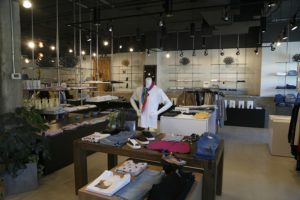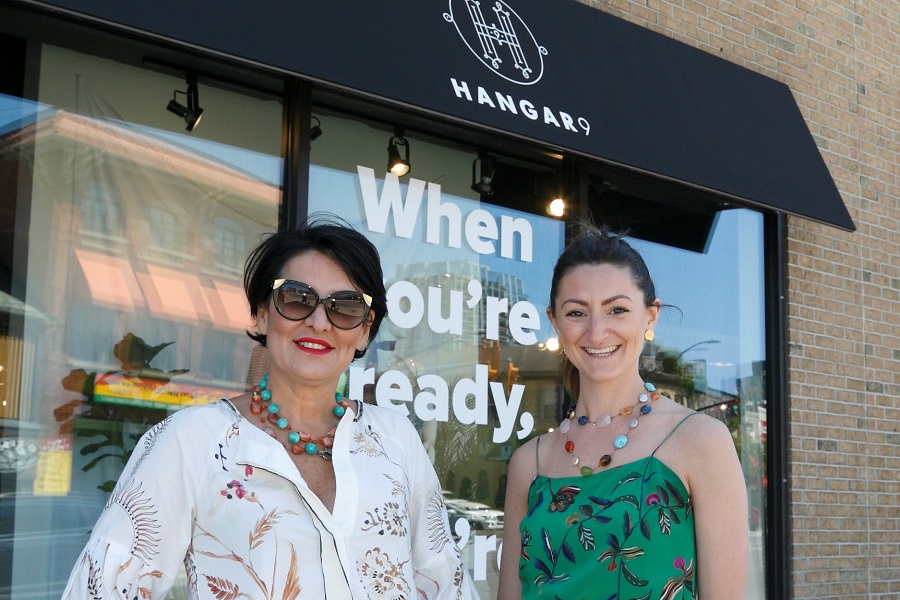What Happens Now?
A big proponent of tactile, personal and engaging retail experiences, Lisa Ferguson plays a wait-and-see game with consumer behaviour
Photo: Lisa Ferguson and daughter, Emily
YOU DON’T SURVIVE more than 35 years in the fashion business without building strong relationships. And it’s those relationships that helped independent clothing retailer Hangar9 stay the course during the province’s mandated Covid-19 shutdown.
“On Sunday [March 22], we were running our annual warehouse sale. By Wednesday, we were officially closed,” recalls Lisa Ferguson, who co-owns the business with two of her sisters. The order to close was a shock, says Ferguson, and it came just as the high-end ladies fashion store was ramping up for the busy spring-summer season.
The Hangar9 team went into survival mode. “We talked to our staff. We talked to our bankers. We talked to our landlord. And we talked to our suppliers. The first two weeks was about organizing the business. Our belief was that it’s not about what happens during Covid, it’s about the partnerships you want to sustain after Covid.”

In the midst of the chaos, Hangar9 and its Richmond Row neighbour, Andrew Douglas Clothier, were robbed. Ferguson and her daughter were physically assaulted during the break-in.
“I’ve never experienced anything like that before, but it’s a sign of the times,” says Ferguson. “The girl who assaulted us is a professional thief. With the closure, her business came to an end, too. She was desperate.”
“Hangar9 has always been about relationships and the experience of shopping here. That has always been our strength and it’s something you can’t buy on the Internet” —Lisa Ferguson
Shaken but undaunted, Ferguson pressed on.
“Hangar9 has always been about relationships and the experience of shopping here. That has always been our strength and it’s something you can’t buy on the Internet,” she says.
The store’s commitment to personalized customer service did not change due to the pandemic. Resisting the temptation to launch an online store, Hangar9 instead turned to social media and Zoom to connect with customers and generate sales.
“The only employee we kept on during the shutdown was our social media manager,” says Ferguson, who hosted a series of weekly Zoom workshops on topics ranging from dressing for video calls to sustainability in fashion.
“If anything positive came out of Covid, it’s that it gave us an opportunity to really showcase what we know. We don’t just sell clothes. There’s a method to our madness,” Ferguson says. “And we had an outpouring of gratitude from our customers. I have a whole binder of emails just saying thank you.”
The store continued to offer personal shopping by inventing ‘The Style Box’ — a curated wardrobe of nine pieces hand-picked for individual clients to try on at home. And of course, if someone noticed a must-have piece on Facebook or Instagram, they could contact Ferguson and arrange for curbside pick-up.
With the store reopened since May 20, Hangar9 now offers the option of shopping virtually. Ferguson explains that one dressing room has been set aside for private Zoom consultations with clients who remain nervous about venturing out.
Other post-shutdown challenges remain, including sourcing inventory in time for the fall-winter season and the uncertainty over the future of downtown as a retail destination.
“There are still so many moving parts,” Ferguson says. “London supported independent businesses before Covid-19, but now we need people to get off the Internet and to support us even more.” ![]() Nicole Laidler
Nicole Laidler


